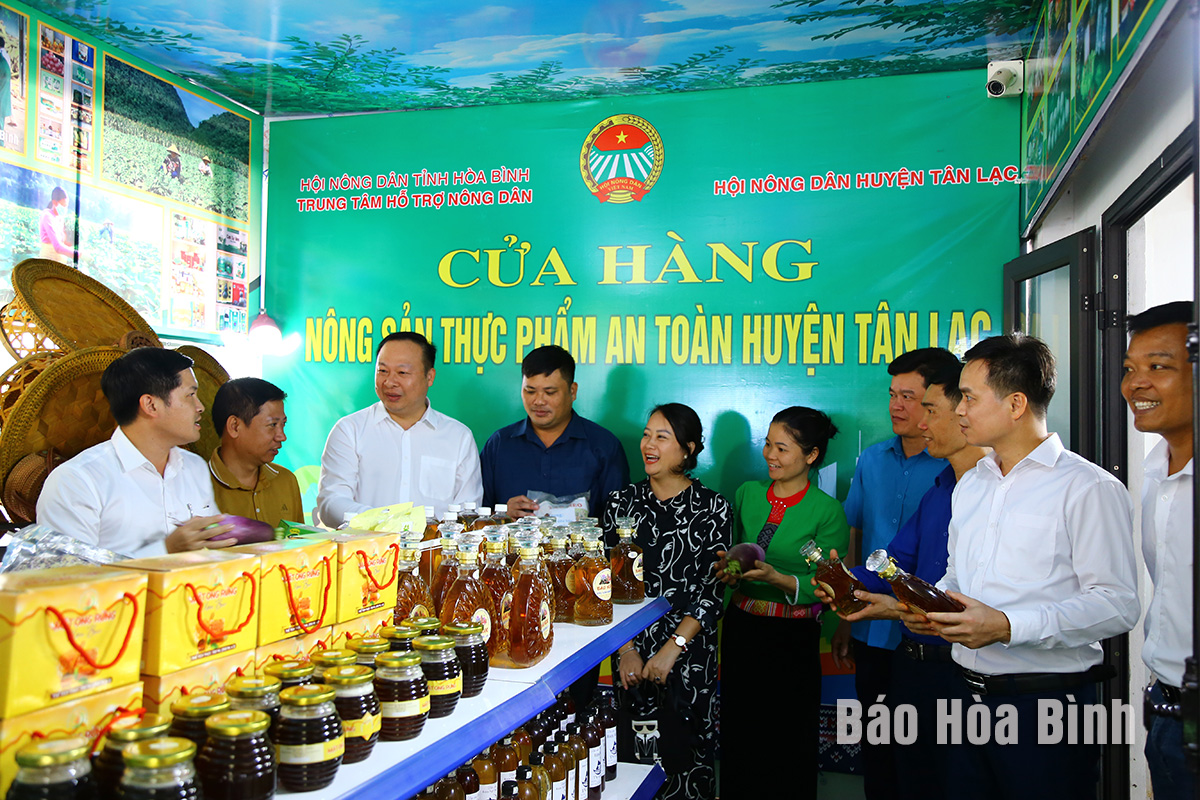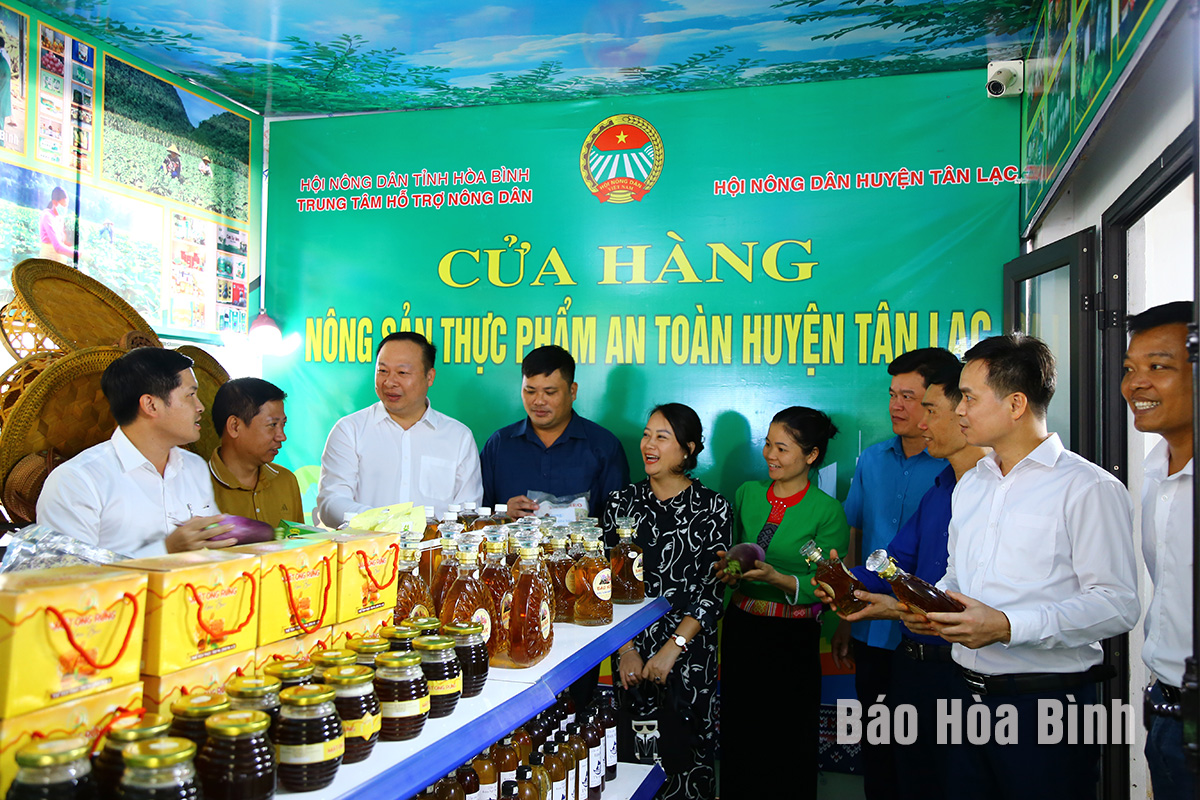
On June 6th, the Farmers' Union of Tan Lac District collaborated with the Provincial Farmers' Support Center to organize the grand opening of the safe agricultural produce store in Tan Lac District.

The delegates were visiting the products
displayed at the store.
In accordance with Project No. 01-DA of the
Provincial Party Committee's Standing Board and Plan No. 60-KH/H.U, dated
September 13, 2021, of Tan Lac District’s Party Committee on implementing the
Project "Enhancing the Party's Leadership over the Farmers' Unions at all
levels in building strong union organizations, participating in supporting
production development, and product consumption to contribute to building new
rural areas in the 2021-2025 period”, the Farmers' Union of Tan Lac District
collaborated with the Provincial Farmers' Support Center and the Farmers' Union
of Phu Cuong Commune to survey the locations and the business needs in the
area. Among them, Mr. Nguyen Van Hieu, a business owner from Vo hamlet,
expressed the desire to establish a safe agricultural produce store and
proposed the assistance in the establishment process. He also committed to
complying with the regulations when being supported.
After completing the various steps, the store
received the partial financial support to build the signboards, the
traceability labels, the biodegradable bags, the refrigerators, the display
shelves, the product baskets, etc. It also organized the connections with the
cooperatives and the collaborative groups in the district to introduce the
products at the store. The store has been completed with an area of 15m2 so
far. The displayed products are clean and safe, OCOP products, VietGAP products
from the district and neighboring districts such as chayote and radish from
Quyet Chien Safe Vegetable Cooperative; forest honey from Buc hamlet, Tu Ne
commune; Shan Tuyet tea from Ngo Luong commune; the traditional woven fabric
from Dong Lai Cooperative...
During the opening ceremony, the store owner
signed the commitments with the cooperatives and the collaborative groups to
display, introduce, promote, and sell the agricultural products in the area,
and fulfilling the commitments when receiving support...
According to data from the Hoa Binh Provincial Party Committee, the industrial production index for the first six months of 2025 is estimated to have increased by 20% compared to the same period last year. This marks the highest year-on-year growth rate for this period since 2020.
In the first six months of 2025, Hoa Binh province’s export turnover was estimated at 1.145 billion USD, marking an 18.11% increase compared to the same period in 2024. Import turnover was estimated at $ 804 million, a 17.15% increase, which helped the province maintain a positive trade balance.
The lives of the ethnic minority farmers in Tan Lac district have gradually improved thanks to the new directions in agricultural production. This is a testament to the collective strength fostered through the professional associations and groups implemented by various levels of the district’s Farmers’ Union.
With the motto the "product quality comes first,” after nearly one year of establishment and operation, Muong village’s Clean Food Agricultural and Commercial Cooperative, located in Cau Hamlet, Hung Son Commune (Kim Boi district), has launched reputable, high-quality agricultural products to the market that are well-received by consumers. The products such as Muong village’s pork sausage, salt-cured chicken, and salt-cured pork hocks have gradually carved out a place in the market and they are on the path to obtaining the OCOP certification.
In the past, the phrase "bumper harvest, rock-bottom prices" was a familiar refrain for Vietnamese farmers engaged in fragmented, small-scale agriculture. But today, a new spirit is emerging across rural areas of Hoa Binh province - one of collaboration, organisation, and collective economic models that provide a stable foundation for production.
Maintaining growing area codes and packing facility codes in accordance with regulations is a mandatory requirement for agricultural products to be eligible for export. Recently, the Department of Agriculture and Environment of Hoa Binh province has intensified technical supervision of designated farming areas and packing facilities to safeguard the "green passport" that enables its products to access international markets.



